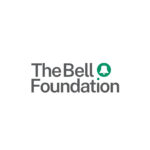Call for schools working with learners using EAL to test new SEND resources
The Bell Foundation is calling for school practitioners working with learners who use English as an Additional Language (EAL) to test new guidance and resources which aim to ascertain whether pupils have a special educational need (SEND) in addition to their EAL status.
The Bell Foundation will shortly be launching guidance and resources for school practitioners working with learners using English as an Additional Language (EAL) to assist in ascertaining whether these pupils have a special educational need (SEND) in addition to their EAL status, which may be impacting on their learning and development.
How EAL Coordinators and SENDCos can help
To inform development of the guidance and resources the Foundation is keen to hear from school-based practitioners, particularly EAL Coordinators and Special Educational Needs and/or Disabilities Coordinators (SENDCo), who would be interested in trialling the guidance and resources over two terms from late January 2023, and able to provide feedback and take part in focus groups. The resources and guidance to be trialled will include but not be limited to:
- Completion of a whole School EAL with SEND Audit.
- Action planners.
- Processes for information gathering and assessment.
- Information gathering forms.
- Guidance for communicating with the parents/caregivers of learners using EAL.
Why these resources are important for learners who use EAL
Around 1.4 million pupils in English schools have an identified special educational need (SEN). Research suggests that there are varying interpretations and practices across professionals, schools and local authorities in both SEN identification and provision.
There are more than 1.6 million pupils in state-funded primary and secondary schools in England who use EAL. In 2022, 21.2% of primary pupils and 17.5% of secondary school pupils use EAL. While speaking EAL is not a special educational need, learners using EAL may themselves have additional educational needs, just like learners who use English as their first language.
Failing to identify a SEND as early as possible typically results in pupils not being offered the targeted support and arrangements that they need to make progress in their learning. Specific learning needs can be difficult for school staff to identify if the learner and their parents are new to English. The Foundation’s guidance and resources aim to assist teachers, EAL Coordinators and inclusion staff in their respective settings in observing and gathering information in order to make an informed judgement on:
- Whether delays in pupils’ expected progress and learning may stem from their current inability or limited ability to access the curriculum due to their newness to English, or;
- Whether they might also be experiencing a specific learning difference or a special educational need in addition to their being new to English.
How to take part in this project
Thank you for your interest in this project. We have reached capacity for this phase and are no longer looking for volunteers. However, if you would like to be kept informed on the progress of the project please sign up to the newsletter.
